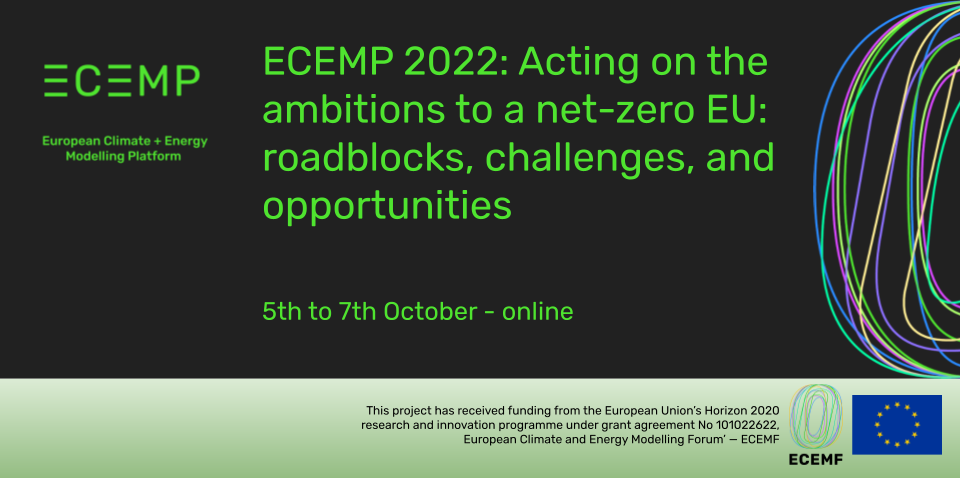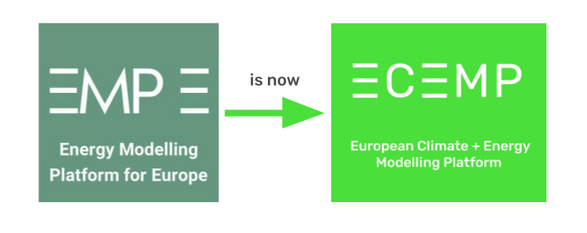European Climate and Energy Modelling Platform 2022
Acting on the ambitions to a net-zero EU: roadblocks, challenges, and opportunities
The annual ECEMP conference brings together Europe’s climateand energymodelling community over a three-day period in a forum for deep exchange of research and modelling practice and varied discussions. The event will feature a balanced mix of high-level panel discussions and interactive workshop sessions to enable a peer-reviewed digest of models and policy insights for the transformation of the European energy system. The ECEMP 2022 conference will be a platform for exchange among researchers and modelling teams from across Europe; from H2020 projects, representatives of the European Commission as well as partners from industry and civil society.


In agreement with the European Commission, the former EMP-E Conference has adopteda new name,“European Climate and Energy Modelling Platform (ECEMP)”,to consider the increasing role of climate policies and climate change and their impact on energy demand and supply planning.
This year’s conference is planned again as an online event, due to uncertainties regarding the possibility of physical meetings. We will set up the same possibilities for interaction as last year to ensure an engaging, policy-oriented and enjoyable conference experience.The original EMP-E was created in 2017 and has since been organised on a yearly basis by the H2020 Energy Modelling group – a group of projects funded by the European Commission’s Research and Innovation Programme. This year, the event is coordinated by ECEMF – the European Climate and Energy Modelling Forum, with support of SENTINEL, NAVIGATE, WHY, OpenENTRANCE, PLANET, CINTRAN, PARIS REINFORCE, EMB3RS, and newTRENDs.The conference does not have a registration fee as it is funded by the European Commission. Theprojects contributing to the conferencehave received funding from the European Union’s Horizon 2020 Research and Innovation programme.
Days and themes
Day 1: Energy security and geopolitics for fossil and low-carbon fuels
Day 2: Innovation, societal and technical changes for Net Zero
Day 3: The latest IPCC findings and implications for national and short term policies
